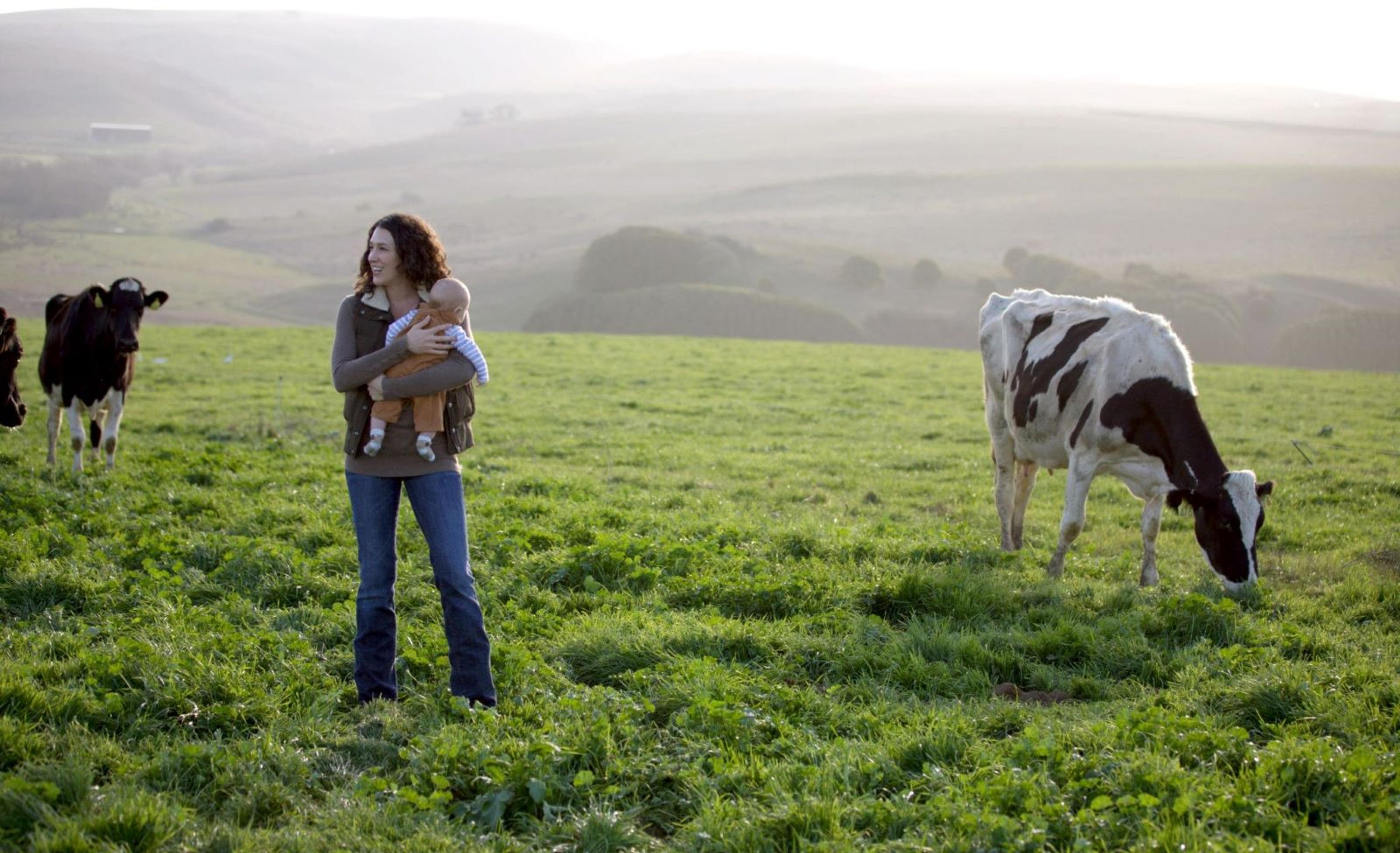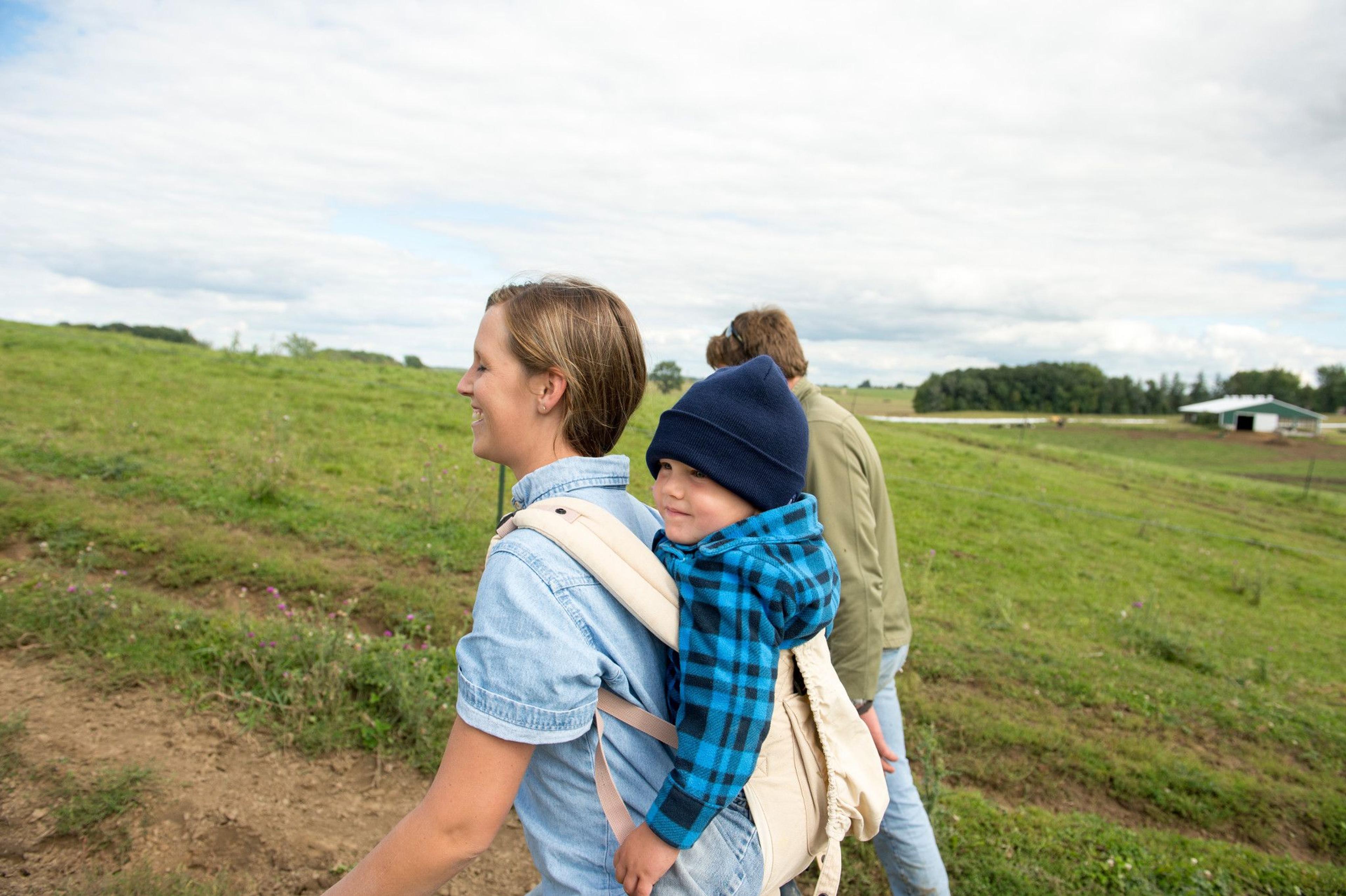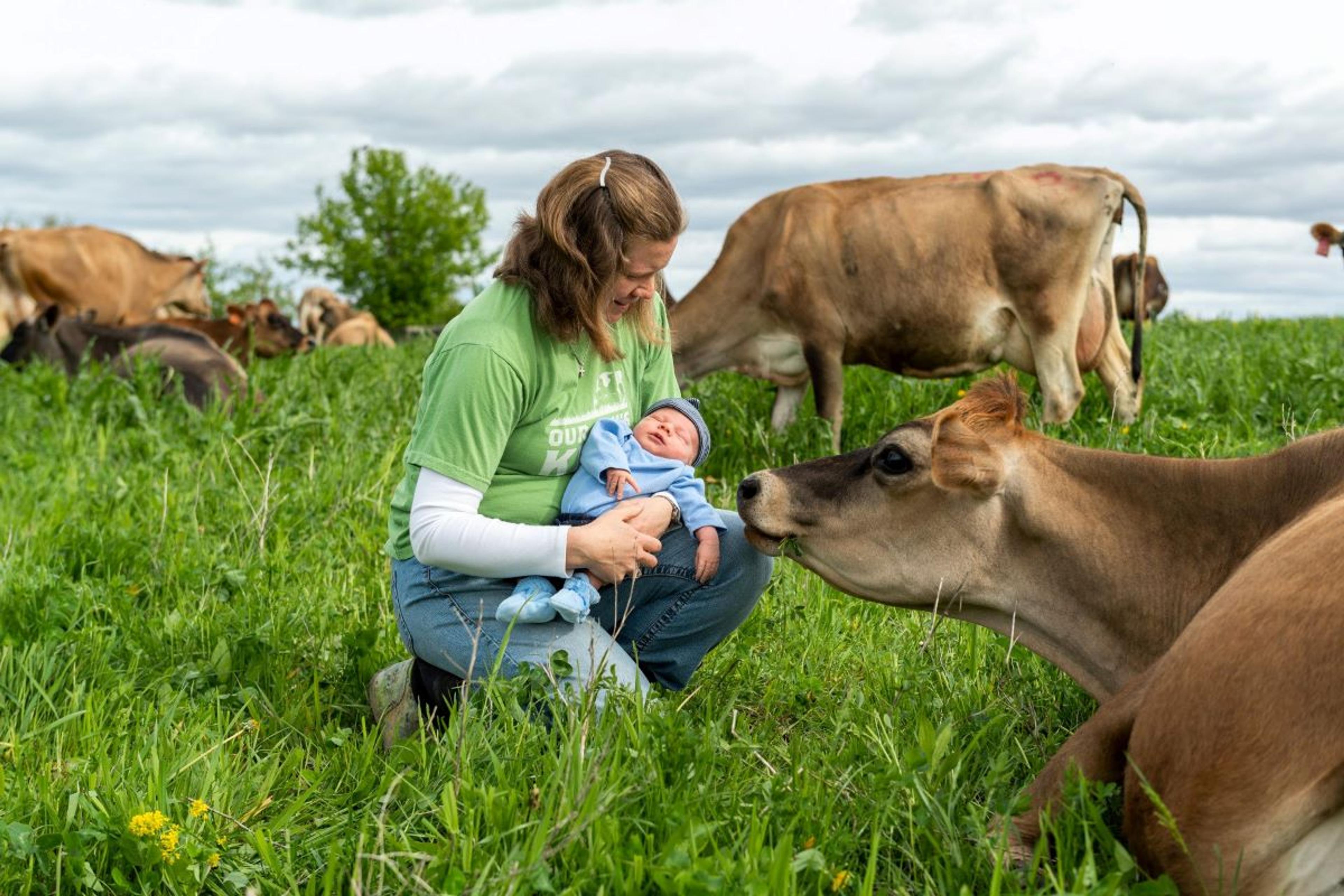
Food
Mind, Movement, and Maternal Nutrition for New Moms
Kristin Enge, mother, birth and postpartum doula, prenatal yoga teacher, childbirth educator, and Certified Lactation Counselor from Madison, Wisconsin, writes her thoughts on self-love for moms.
I distinctly recall the day I was told I would be “forever postpartum.” I remember how I shuddered at the suggestion. How was I to reconcile the inside me with the outside me? Giving birth was the most difficult thing I’d ever done with my body, and yet I was focused on the softness of my belly rather than the strength it had taken to carry and birth a baby.
It’s only now, years into my role as mother, that I get it. Anyone who has carried a baby truly is forever postpartum, but why had I assumed it was a negative? It’s in the years since I’ve learned to love this saying because of course I am forever changed! My body will now and forever move to the beat of my children’s DNA pulsing through my veins. Like the rings of a tree, each stretch mark has left a permanent history on my body. A badge of honor as opposed to a thing to be tucked away and hidden.

©David Nevala for Organic Valley
Yet all too often when I’d open my Instagram, I would be inundated with images of metaphorically caped moms looking flawless right after giving birth, cleaning their house, or sitting at kid pick-up. Moms who were being hailed as heroes for their multitasking amazingness and the ability to “do it all.” At what point did the definition of motherhood evolve to include perfection? It wasn’t long before the comparison game kicked in and the old adage “comparison is the thief of joy” seemed to ring truer than ever. Over time, I learned to be more selective of what media I was willing to digest. Being selective of what you follow is an act of radical self-love.
For every perfectly curated, coiffed social media page, there are multitudes of families who are isolated from the necessary support systems needed to be healthy, well-functioning families. We ask, nay we assume mothers are capable of taking on the role of superhero only to be left feeling inadequate. Unfortunately, the result goes hand in hand with invalidating or ignoring our needs, desires, and wants for the sake of meeting the unyielding demands of our families. But I’m left wondering, what is heroic about self-forgetting? Who does that benefit and what does it teach our tiny humans?
What about the messier, more vulnerable side of motherhood? The place where we shed the pressure to be perfectly put together and embrace (not just accept) that we are not meant to be perfect or even have it together all of the time. One of my favorite places to practice this is in therapy. As a birth and postpartum doula, I am regularly encouraging folks to establish care with a trained therapist before a baby arrives. Of course this helps keep those baby blues at bay but it’s also a place to be seen, to have your thoughts and needs validated, and when necessary to be put in check.
Mothers are forged through our capacity to love and protect; but we can’t omit ourselves from the equation. To become a mother, or parent really, is to join your thread to the tapestry of humanity. To continue ahead when the path is unclear and the choices you face feel impossible. And that’s what makes the journey so profoundly unique, we all experience the fire of this love so differently. How could there be one right way of showing up? The freedom is in finding your individual path.
As you set your sights on the direction that’s best for you and your family, start by getting to know your local resources ahead of your birth. Who are your local lactation specialists, are there any parent/baby groups in your area, if not, virtual options are aplenty these days. Many local libraries often have a read-aloud or storytime for children, even if you have a small babe, the not-so-small task of leaving the house can be a huge win.
Breathe in, now exhale with a little sound. Motherhood doesn’t ask for you to be perfect. It asks you to be brave. You’ve got this!

The O’Reilly family, Minnesota, walks their organic land.
The Importance of Movement
Another way we can get in tune with our bodies and minds is through movement. Organic Valley Wellbeing Coordinator (and expectant mom) Madelyn Miller, shares ways that moms can keep moving during and after pregnancy (of course, with their doctor’s approval.) Miller holds a Master of Science in Clinical Exercise Physiology and a Bachelor of Science in Exercise and Sports Science.
Adding physical movement can help prevent common issues experienced during pregnancy and help mothers come back sooner during the postpartum period. It is also a way for new and expecting mothers to maintain their mental and physical well-being.
The American College of Gynecology notes movement can help improve a mother’s mood, boost energy, and reduce the risk of postpartum depression. It can also help a mother’s body heal, adjust, and strengthen after childbirth.
By staying physically active throughout pregnancy, a soon-to-be mother is helping prepare her body for the journey through labor, birth, and the postpartum period.
Physical movement can often help decrease a woman’s risk of developing preeclampsia, gestational diabetes, and having a cesarean birth, according to Mayo Clinic. It can also help reduce a woman’s risk of common pregnancy ailments including swelling, varicose veins, constipation, and lower back pain.
To be physically active during pregnancy does not mean making dramatic lifestyle changes. Most women who already are physically active are encouraged to maintain this activity throughout pregnancy and postpartum. Physical Activity Guidelines for Americans recommends that women, both pregnant and postpartum, complete at least 150 minutes of moderate-intensity aerobic activity each week. These activity recommendations should be spread throughout the week in short to moderate length sessions. It is recommended that a woman who may not have been participating in regular physical movement begin slowly and follow a medical professional’s guidance.
The American College of Gynecology recommends safe movement, including brisk walking, swimming, biking on a stationary bike, or modified yoga or Pilates. Often women can continue running, jogging, or playing racquet-sports if they were regularly participating prior to becoming pregnant. Common activities that are unsafe include contact sports that risk your abdominal region getting hit or activities that can result in a hard fall such as downhill skiing, bicycling, horseback riding, etc. Hot yoga, hot Pilates, or any activity that involves extra heat can also put mother and baby at risk for becoming overheated. Women should return to activities when they feel ready and have clearance from their medical professional.
Postpartum women should focus on taking time to warm up and cool down before any activity. They should also slowly increase intensity, drink plenty of fluids for hydration, and wear a supportive bra. If a woman is breastfeeding, it can be helpful to feed or pump prior to exercise to avoid discomfort.
With any physical movement recommendation, it is best to work with a medical professional to create the best plan for mother and baby.

A curious cow checks out Jodi Peake and baby Byron, Iowa.
Maternal Nutrition
Finally, we can take care of ourselves by nourishing our bodies. While it’s important to know what nutrients we need during pregnancy and postpartum, we also think it’s important to acknowledge all the ways we can use food to feel good during this new journey.
Food as Fuel: Our bodies are hard at work during pregnancy and postpartum! We need more calories to keep our energy up, and The American College of Obstetricians and Gynecologists recommends getting an extra 340-450 calories each day during the second and third trimesters of pregnancy. If breastfeeding, it recommends getting 450-500 extra calories per day and to stay hydrated to help support milk supply.
If it’s hard to keep food down, or you struggle to have an appetite, there are ways you can get the calories and nutrients you need during pregnancy. Smoothies are an option, as you can pack them full of fruits, veggies, and protein, plus you’ll get some extra hydration and calories without having to eat a full meal. And an extra pro tip? Having a cold smoothie in the morning might help you get ahead of nausea if you’re experiencing morning sickness.
Food as Comfort: Is there anything better than enjoying your favorite comfort food? Food is often more than just fuel, and it can impact how we feel. For example, if we are looking for comfort, we might turn to an old favorite–maybe a dish that carries a sense of nostalgia, a feeling of being cared for, or a happy memory. When you’re on a new motherhood journey and you’re managing a lot of “firsts,” foods that are familiar can be especially comforting.
Sometimes people also crave foods that are new or novel during pregnancy. (Pickles and ice cream, anyone?) And while it may feel like we’re “giving in” to these cravings, we can reframe them as a way that we can listen to our body and honor what it needs. If dill and vanilla sounds like the perfect flavor combo to you, enjoy without guilt, and remember that it’s all about balance.
Food as Connection: When you told your loved ones you were expecting an addition to the family, were you sharing a meal? Or maybe a friend dropped off a homemade dinner after you brought your baby home? Do you remember your baby’s first birthday cake? Food can be a way to connect and create memories during any season of life, and it’s especially important to feel connected and supported during pregnancy and postpartum. Finding little moments to share with others, whether cooking together or enjoying takeout on the couch, can help you feel connected to your support system.
Food can also help us feel connected to our cultures, identities, and ourselves. We might learn recipes passed down for generations with the hope that we’ll one day pass those onto our kids. Or maybe there are special traditions and foods you enjoy to celebrate certain holidays and events. And you can even create new food traditions in the family you’re creating!
After about 40 weeks, uncountable body changes, oodles of advice, and numerous checkups, you are officially Mom. Congratulations. Though you carry the new label, Mom, and new responsibilities, don’t forget to remain true to your identity and take care of you!
Related Articles
- Tags:
- organic nutrition,
- family & kids,
- high quality products

















